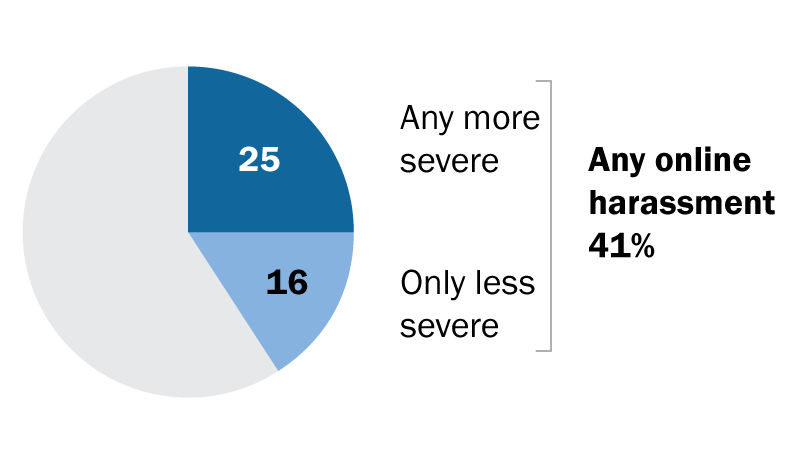
6 facts about Americans and TikTok
62% of U.S. adults under 30 say they use TikTok, compared with 39% of those ages 30 to 49, 24% of those 50 to 64, and 10% of those 65 and older.
62% of U.S. adults under 30 say they use TikTok, compared with 39% of those ages 30 to 49, 24% of those 50 to 64, and 10% of those 65 and older.
All
Publications
Amy Mitchell (Pew Research Center), Philip Howard (University of Oxford), Jane Lytvynenko (Buzzfeed News) and Lori Robertson (Factcheck.org) discuss misinformation during the coronavirus outbreak, and ahead of the 2020 presidential election, as part of SXSW 2020’s virtual sessions.

Roughly four-in-ten Americans have experienced online harassment, with half of this group citing politics as the reason they think they were targeted. Growing shares face more severe online abuse such as sexual harassment or stalking
Two-thirds of parents in the U.S. say parenting is harder today than it was 20 years ago, with many citing technologies – like social media or smartphones – as a reason.
From distractions to jealousy, how Americans navigate cellphones and social media in their romantic relationships.
Majorities of U.S. adults believe their personal data is less secure now, that data collection poses more risks than benefits, and that it is not possible to go through daily life without being tracked.
Copyright 2024 Pew Research Center



